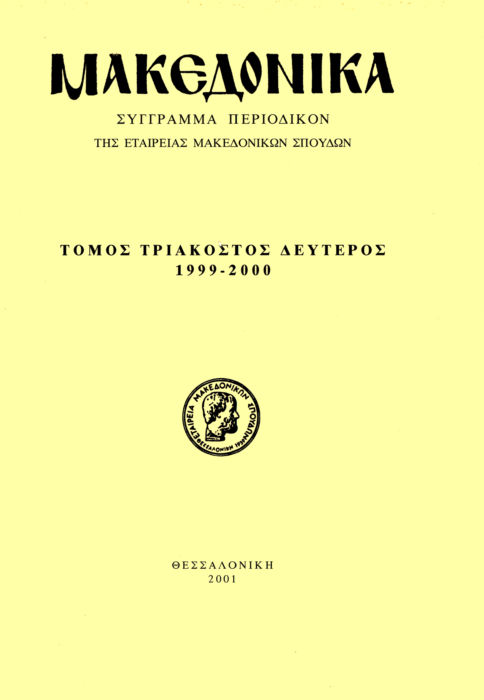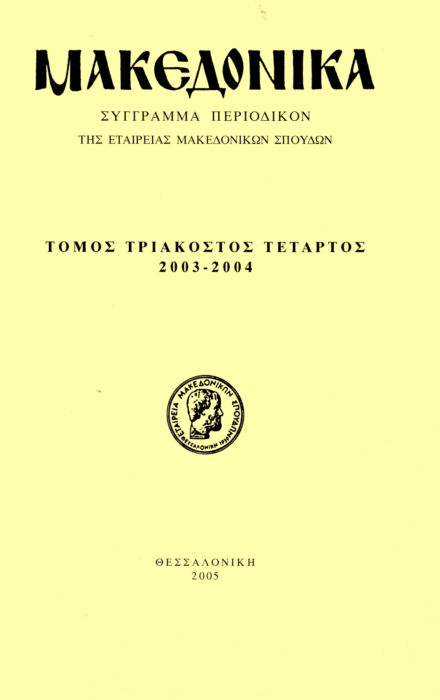The Turkish schools in Kailaria (Ptolemaïda) and the surrounding area in the school year 1913-1914
Abstract
This paper deals with the Turkish schools that were operating in Kailaria, as Ptolemaida was then called, and neighbouring villages in Western Macedonia in the 1913-14 school year. The research was based on archival material from the Historical Archives of Macedonia.
On the basis of the unpublished documents that we have at our disposal, in the 32 communes registered at this time there were a total of 48 schools - 47 Turkish and 1 Romanian. We present these communes with the names by which they were known then and now, the type of school (e.g. koino, where the rudiments of reading and writing were taught, astiko, a five- or six-class primary school, etc.) and schoolhouse (communal, private, state), the names of the teachers, their birthplace, age, education, marital status, years of service, salary in the commune, and the associated school costs that were borne by the communes.
The Turkish schools in Kailaria and the surrounding district operated normally until the exchange of populations (1923), when the Turks were forced to leave the area and resettle in Turkey.
Article Details
- How to Cite
-
Βαλσαμίδης Π. (2002). The Turkish schools in Kailaria (Ptolemaïda) and the surrounding area in the school year 1913-1914. Makedonika, 33(1), 255–279. https://doi.org/10.12681/makedonika.288
- Issue
- Vol. 33
- Section
- Articles

This work is licensed under a Creative Commons Attribution-NonCommercial-ShareAlike 4.0 International License.
Authors who publish with this journal agree to the following terms:
- Authors retain copyright and grant the journal right of first publication with the work simultaneously licensed under a Creative Commons Attribution Non-Commercial License that allows others to share the work with an acknowledgement of the work's authorship and initial publication in this journal.
- Authors are able to enter into separate, additional contractual arrangements for the non-exclusive distribution of the journal's published version of the work (e.g. post it to an institutional repository or publish it in a book), with an acknowledgement of its initial publication in this journal.
- Authors are permitted and encouraged to post their work online (preferably in institutional repositories or on their website) prior to and during the submission process, as it can lead to productive exchanges, as well as earlier and greater citation of published work (See The Effect of Open Access).







